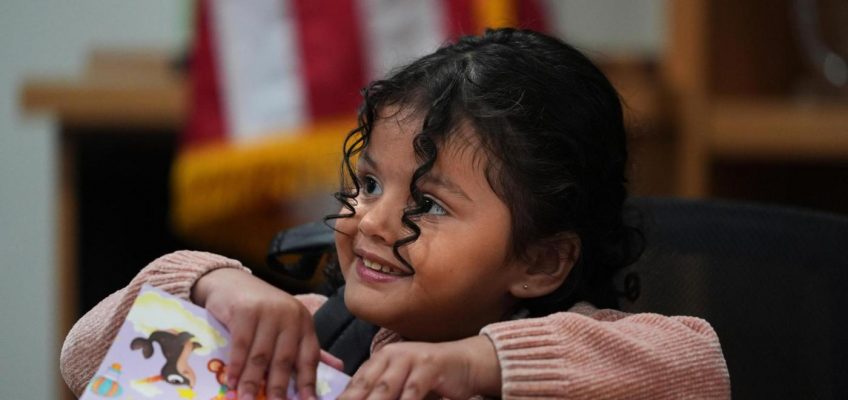LOS ANGELES (AP) — A 4-year-old Mexican girl who receives lifesaving medical care from a Southern California hospital was granted permission to remain in the country weeks after federal authorities said she could be deported, her family’s attorneys said Tuesday.
Related Articles
Federal lawsuit accusing Peter Navarro of using unofficial email account dropped
Trump asks Congress to claw back billions in approved spending targeted by DOGE
Federal officers in tactical gear went into a Latino community in Minneapolis. A protest followed
Musk calls Trump’s big tax break bill a ‘disgusting abomination,’ testing his influence over the GOP
Federal judge blocks Florida from enforcing social media ban for kids while lawsuit continues
The U.S. Department of Homeland Security granted the girl and her mother humanitarian parole for one year so she can continue to receive treatment she has been getting since arriving at the U.S.-Mexico border in 2023, according to a copy of a letter received by Rebecca Brown, an attorney for the family.
An email message was sent to the Department of Homeland Security seeking comment.
The decision came after the family said they were notified in April and May that their humanitarian parole was being revoked and they would be subject to potential deportation.
The Trump administration has been pushing to dismantle policies from President Joe Biden’s administration that granted temporary legal status for certain migrants and allowed them to live legally in the U.S., generally for two years.
The girl was taken to a hospital upon arriving on at the U.S.-Mexico border with her mother in 2023 and released once she was stable enough. She receives intravenous nutrition through a special backpack for short bowel syndrome, which prevents her from being able to take in and process nutrients on her own, and lawyers said the treatment she receives is necessary at this stage for her to survive and isn’t available in Mexico.
Humanitarian parole, which doesn’t put migrants on a path to U.S. citizenship, was widely used during the Biden administration to alleviate pressure on the U.S.-Mexico southern border. It was previously used on a case-by-case basis to address individual emergencies and also for people fleeing humanitarian crises around the world including Vietnam, Cambodia and Laos during the late 1970s.
In Mexico, the girl was largely confined to a hospital because of her medical condition, according to her mother, Deysi Vargas. After joining a program at Children’s Hospital Los Angeles, she can now receive treatment at home in Bakersfield, California, and go to the park and store like other children, Vargas has said.
Lawyers said the girl’s medical treatment, which requires 14 hours a day of intravenous nutrition, will not be necessary indefinitely but that she is not at the point where she could live without it.


Leave a Reply